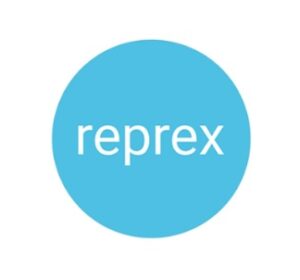
Reprex is the Hague-based impact startup that is developing decentralized, modern, web 3.0-compatible data observatories.
Reprex
About Reprex
Reprex is the Hague-based impact startup that is developing decentralized, modern, web 3.0-compatible data observatories. We enable key impact makers, such as startups, NGOs, and policymakers to contribute to other SDG goals by making AI and big data work for them. This way we directly contribute to various elements of Goal 16 and 17 of the UN Sustainable Development Agenda. Our products are used in the context of other goals.
We offer open, collaborative data platforms and access to open data so that our partners reach the critical mass of data for their work. Using open data, open science, open source software, and open linked data, we make them ready to embrace the semantic web 3.0. We are particularly targeting organizations that need to fight giant corporations or data monopolies without the means to fund an entire data engineer and data science team. Organizations that had built large and expensive databases in the past quickly became costly legacy systems that they regretted starting. We offer them the ability to link into global databases, and knowledge graphs, and we build them smart applications related to education, gender equality, decent work, responsible consumption, and climate action.
Background
“Big data for all.” As the authors of the famous Data Feminism book eloquently argued, big data creates inequalities. Only the world’s biggest global corporations, best-endowed universities, and strongest governments can maintain long, well-designed, global data collection programs and build huge data lakes. This gives them a seemingly unbreakable advantage in machine learning, testing, and deploying AI, to protect themselves from the negative outcomes and biases of algorithms, and to provide evidence in policy debates or litigation concerning gender equality, responsible consumption, or climate action. We want to fight the injustice of big data with open collaboration and open tools.
Short description of our products
- Our data observatories (platform products) cover our R&D and platform costs while giving us access to an expanding range of prime clients. We use 21-st century open-source data engineering solutions, a decentralized data governance method, and web 3.0 technologies to avoid conflicts of interest and prevent the data Sisyphus of error-prone human data wrangling. Our unique advantage is a combination of legal and technological skills: understanding legally open data, web 3.0, and data modeling, and the ability to participate in the open-source statistical /scientific software creator community.
- We create open-source software applications that fuel our data observatories with unprocessed, open, linked data. We create software for the R statistical environment, which is used in both official statistics and in many business and academic organizations. The production of R software components is a competitive field, but we believe that our position is strong: the vast majority of R packages are lightly or not at all serviced because of the lack of financing.
- We provide bespoke analytics solutions to our institutional partners in our data observatories. Such bespoke solutions iterate over our existing software components, helping us design better applications within an ever-expanding ecosystem. We provide these services on an ad-hoc basis only among institutional partners and users of our data observatories.
- We develop high-value software-as-service applications that leverage our data observatory assets and our software solution into novel, commercially valuable uses. Our applications are built around our family of open-source software and generalize our bespoke analytics solutions. We are in a late prototype phase where we already have some revenue and are trying to prepare for scaling up at the correct price with three of our applications.
Unit: Flexplek
